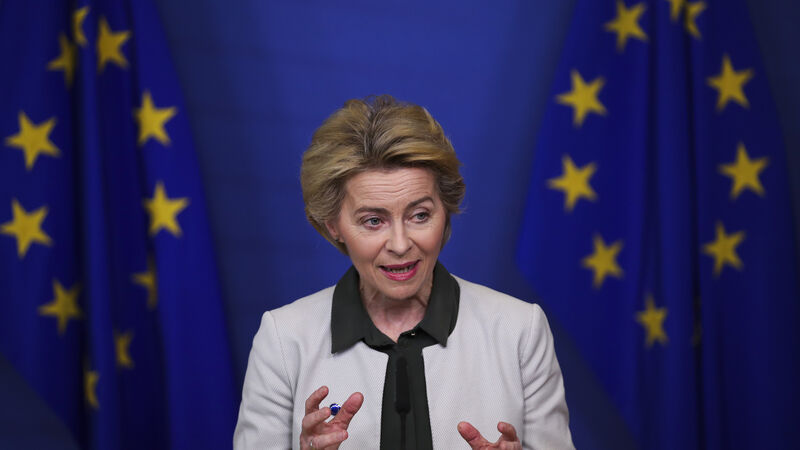Ursula von der Leyen: How the Green Deal and climate change will affect Ireland

The commission president spoke about the Green Deal, what it means for Ireland and its people, the ravages of climate change. Picture: AP/Francisco Seco
When the was invited to engage with European Commission president Ursula von der Leyen on the climate crisis and the EU's response, reporter Pádraig Hoare enlisted the help of a range of climate, energy, and biodiversity experts to frame probing questions.
They included University College Cork lecturer and researcher in energy/economy/environment/engineering, Dr Hannah Daly; research fellow at the MaREI Centre for Marine and Renewable Energy and the Environmental Research Institute (ERI) at UCC, Dr Paul Deane; and the Irish Wildlife Trust campaign officer Padraic Fogarty.













